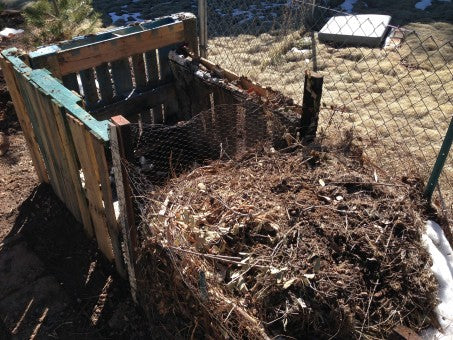
How to use compost to feed the soil (amendment)
Share
Amending with compost is an excellent way to improve soil quality by adding nutrients and promoting biological activity. Here's how to do it effectively:
When should you amend with compost?
Amendment with compost can be carried out:
- In spring , to prepare the soil before spring and summer planting.
- In the fall , after harvest or before winter, to enrich the soil in preparation for planting the following spring.
Autumn is often recommended, as it allows the compost to decompose further over the winter, enriching the soil before the first spring plantings.
Steps to proceed with amendment with compost
1. Prepare the soil
- Clean the soil : Remove weeds, dead leaves and other debris so that the compost comes into good contact with the soil.
- Dig or aerate the soil : If the soil is compacted, aerate it with a spade or fork to facilitate the penetration of the compost. This also helps loosen the soil, especially if it is clayey.
2. Apply the compost
- Mature Compost : Use well-rotted, mature compost. It should be dark, homogeneous, and have a fresh, earthy scent. Immature compost (still decomposing) may be too rich in nitrogen and burn plants.
- Spread the compost : Spread a layer of compost over the soil surface. Generally, a thickness of 3 to 5 cm is sufficient to enrich the soil. If the soil is very poor, you can go up to 8 cm.
3. Incorporate the compost into the soil
- Light incorporation : Use a rake or claw to lightly mix the compost into the top layer of soil (about 5 to 10 cm deep). This allows the compost to be well incorporated and maximizes its effectiveness.
- Don't bury too deep : It's important not to bury the compost too deeply, as the microorganisms that break down organic matter need oxygen. Leaving some of the compost on the surface will also help protect the soil from erosion and drying out.
4. Water
- Watering : After spreading and incorporating the compost, water generously to aid nutrient uptake by the soil and activate microorganisms. Water also helps maintain the moisture needed to keep the compost decomposing and nourish the soil.
5. Mulching (optional)
- Add mulch : If you apply compost in the fall, it may be helpful to add mulch on top (fallen leaves, straw, etc.) to protect the soil over winter and encourage the slow decomposition of the compost.
Recommended dosage
- Vegetable garden : Approximately 3 to 5 kg of compost per m² of cultivated area.
- Flower beds and shrubs : 2 to 4 kg of compost per m².
- Lawn : A thin layer of 1 cm is sufficient for lawn regeneration.
Additional tips
- Don't overload : Too much compost can unbalance the soil, particularly by providing too much nitrogen, which can harm plants.
- Well-balanced compost : Make sure your compost is balanced between brown matter (dead leaves, branches) and green matter (kitchen waste, grass clippings), which will give it an optimal composition for the soil.
- Apply regularly : Amendment with compost can be done every year or every two years depending on the soil's needs.
This method allows the soil to naturally regenerate organic matter, improve its structure, promote water retention and nourish plants sustainably.
